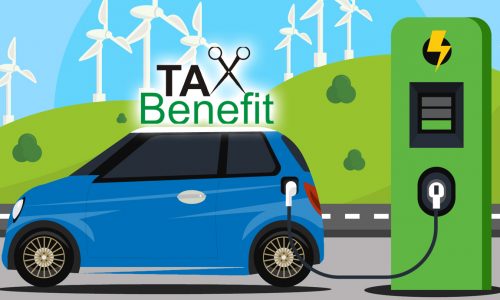Electric power distribution is the final stage in the delivery of electric power. The distribution substation is connected to the transmission system and lowers the transmission voltage using a transformer. Distribution substation is one of the components of a distribution system by state-owned electricity company PT PLN that functions to connect the network to consumers or to distribute electric power to consumers or customers, both medium voltage customers and low voltage customers.
Governing law and regulation
- Law No. 30/2007 on Energy
- Law No. 30/2009 on Electricity (the Electricity Law) as amended by Law No. 11/2020 on Job Creation
- Government Regulation (PP) No. 14/2012 on Electricity Supply Business Activity as amended by Government Regulation (PP) No. 23/2014
- Government Regulation (PP) No. 22/2020 as amended by Government Regulation (PP) No. 14/2021
- Government Regulation (PP) No. 25/2021 on the Implementation of the Energy and Mineral Resources Sector
- Minister of Energy and Mineral Resources Regulation (Permen ESDM) No. 38/2018 on Electricity Procedures and Certification
- Minister of Energy and Mineral Resources Regulation (Permen ESDM) No. 11/2021 concerning the Implementation of Electricity Business
- Ministry of Energy and Mineral Resources Regulation (Permen ESDM) No. 4/2009 concerning Provisions for Electricity Distribution
- Minister of Energy and Mineral Resources Decree (Kepmen ESDM) No. 39 K/20/MEM/2019 on the Ratification of the Electricity Supply Business Plan of the PLN for the period 2019 through 2028
Authorization of Distribution Network
The integrated Electricity Supply Business Permit (IUPTLU), distribution IUPTLU or distribution Electricity Supply Business License for Own Interest (IUPTLS) are the main permits required to build and operate a distribution network. The OSS (online single submission) agency, on behalf of the Minister of Energy and Mineral Resources or the provincial administration, depending on the jurisdiction, is the relevant authority to issue IUPTLU. IUPTLU for distribution requires:
- determination of electricity business area through OSS (on behalf of the energy ministry);
- approval of the selling price of electricity or the rental price of transmission by the energy ministry;
- approval of the applicant’s electricity supply business plan; and
- rental agreements or sharing distribution networks with potential distribution network users.
The determination of the Electricity Business Area as a prerequisite for applying for an IUPTLU for distribution is subject to the procedures outlined in the Permen ESDM No. 11/2021. There can only be one business entity in each Business Area. Based on the Permen ESDM No. 11/2021, the determination of the electricity business area is carried out by considering the fulfillment of the following aspects:
- existing Business Area holders cannot provide electricity;
- existing Business Area holders cannot meet quality and reliability standards;
- the existing Business Area holder releases part or all of the existing electricity business area holder to the energy ministry;
- The Business Area proposed by the business entity has not been reached by the existing Business Area holder; and
- The Business Area proposed by the business entity is a unitary area that manages energy resources in an integrated manner in accordance with the pattern of business electricity demand.
As with the transmission sector, the distribution applicant must also fulfill the commitments stipulated in the form of a building permit or now a building permit, location permit, and environmental permit from the local government and settle with the party whose assets (land, building, or plant) directly or not directly affected by the distribution network.
Distribution network authorization
Any party that provides electricity to the grid, including Independent Power Producers (IPP) and IUPTLU holders can access the distribution network to supply electricity to the community. Access to the network must be proven by a lease between the IUPTLU holder for distribution and network users. The rental fee must be approved by the energy ministry or the governor. Utilization of the electricity distribution network for telecommunications, multimedia and information purposes is permitted with the approval of the network owner, provided that such use does not interfere with the electricity supply in the area. The network owner is required to submit a report on the utilization of the electricity distribution network for telecommunications, multimedia and information purposes to the energy ministry.
Government policy
Similar to the transmission business, the distribution business is technically open to the private sector. However, unlike the transmission business, the distribution business entity is still tied to the electricity business area. Like the transmission business, the Permen ESDM No. 11/2021 also stipulates that distribution business entities must open up the widest possible opportunities for collective use of distribution networks. However, in practice, even private IPPs still rely on the PLN distribution network to supply their electricity to end users. In terms of regulatory involvement, Permen ESDM No. 4/2009 regulates the code of ethics for the distribution business, including standard policies for distribution,
Distribution service rates
Distribution service rental rates must be approved by the government (the energy ministry or governors) depending on the location of the distribution network. Based on Permen ESDM No. 11/2021, holders of Integrated IUPTLU, Distribution IUPTLU or Distribution IUPTLS can lease transmission networks to Integrated IUPTLU holders who have certain business areas, generator IUPTLU holders, or distribution IUPTLS (the distribution lessee). The distribution tenant must apply for a network lease to the distribution business entity with a copy to the energy ministry or the governor in accordance with their respective authorities. The results of network rental price negotiations between distribution companies and distribution tenants are submitted by distribution companies to the energy ministry or the governor for approval. From the technical side, the Permen ESDM No. 11/2021 also requires the use of distribution networks collectively by taking into account the network capacity and the applicable network code.








